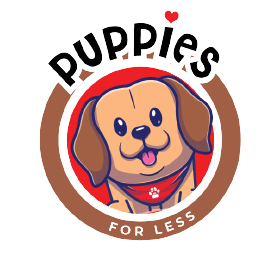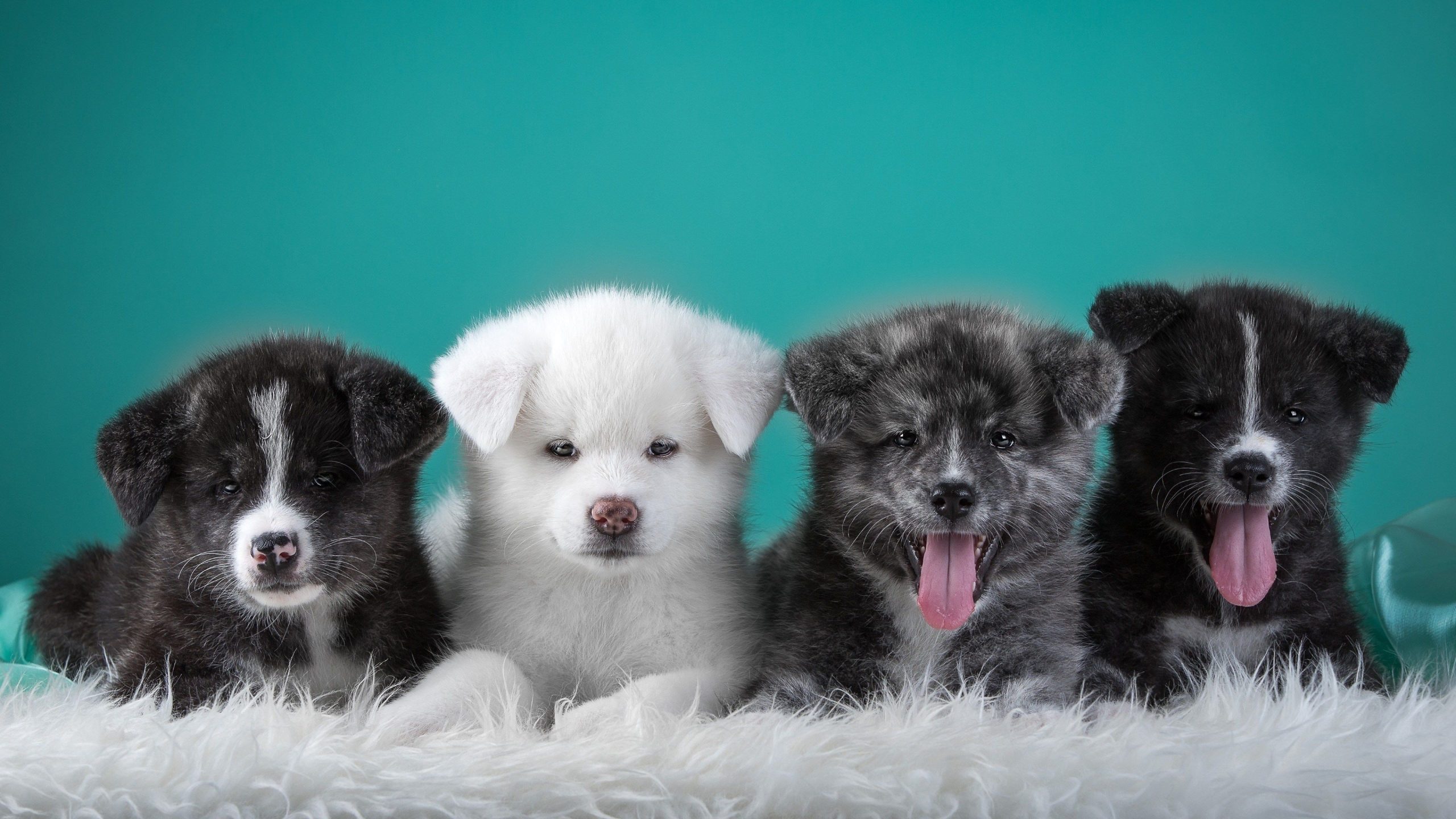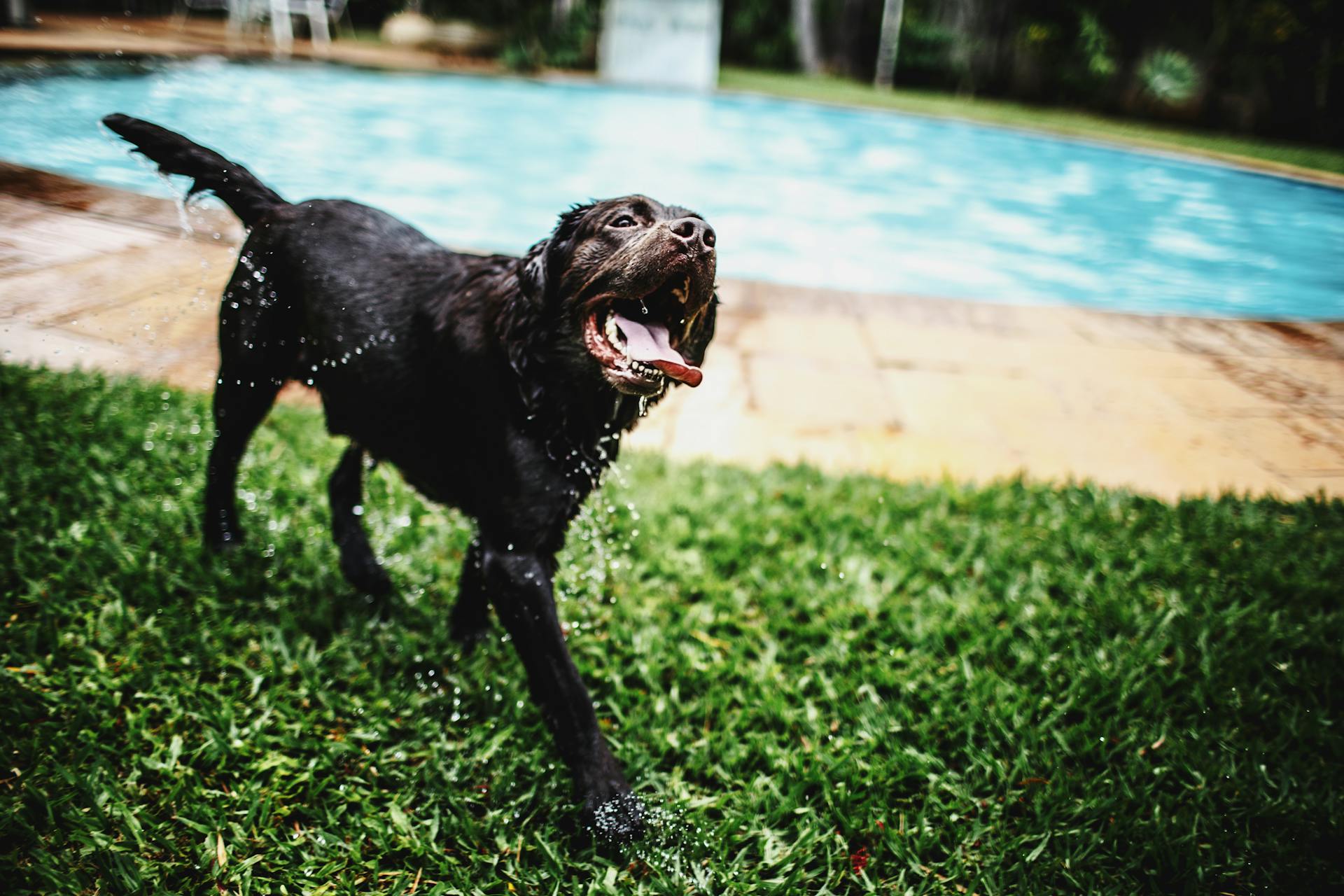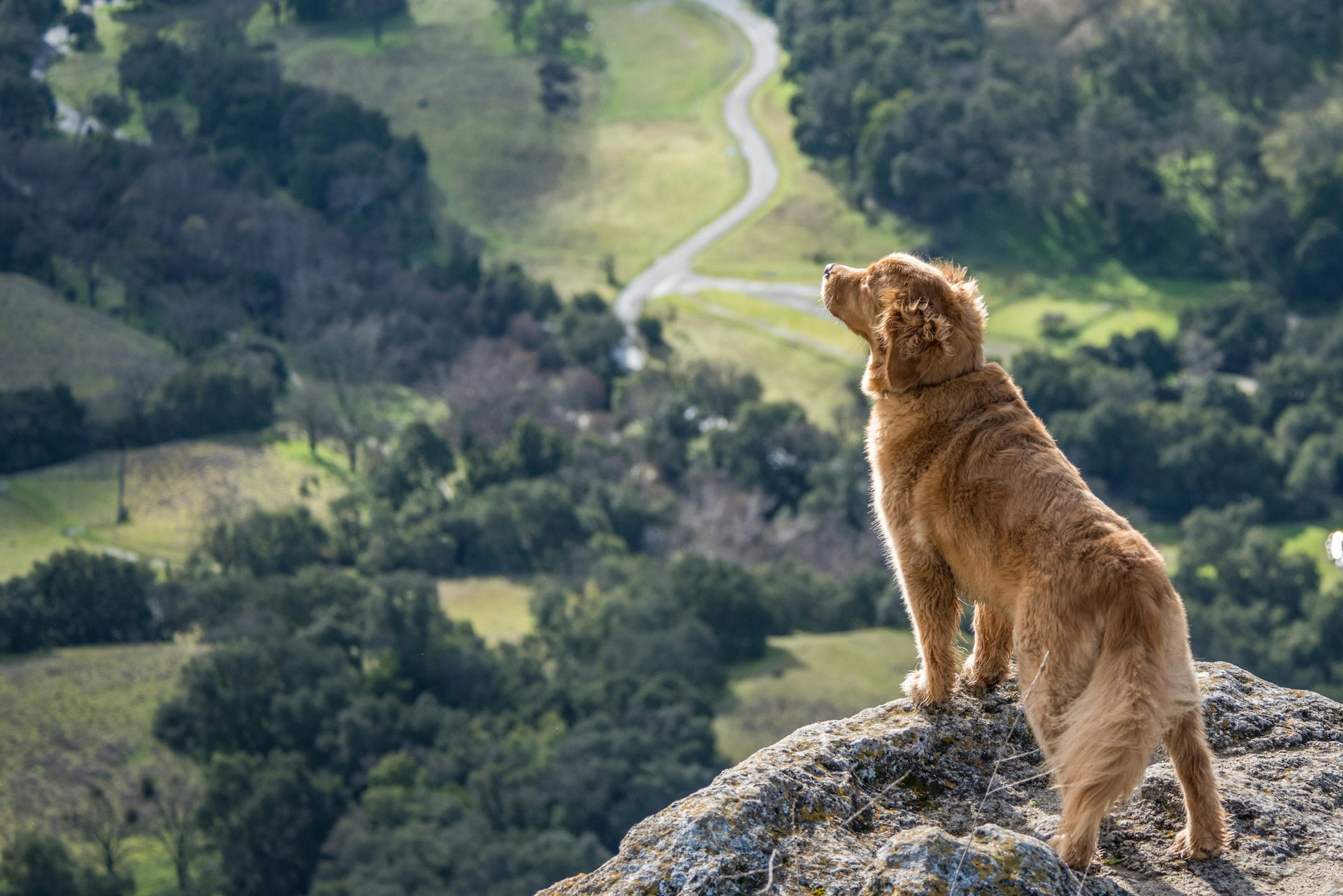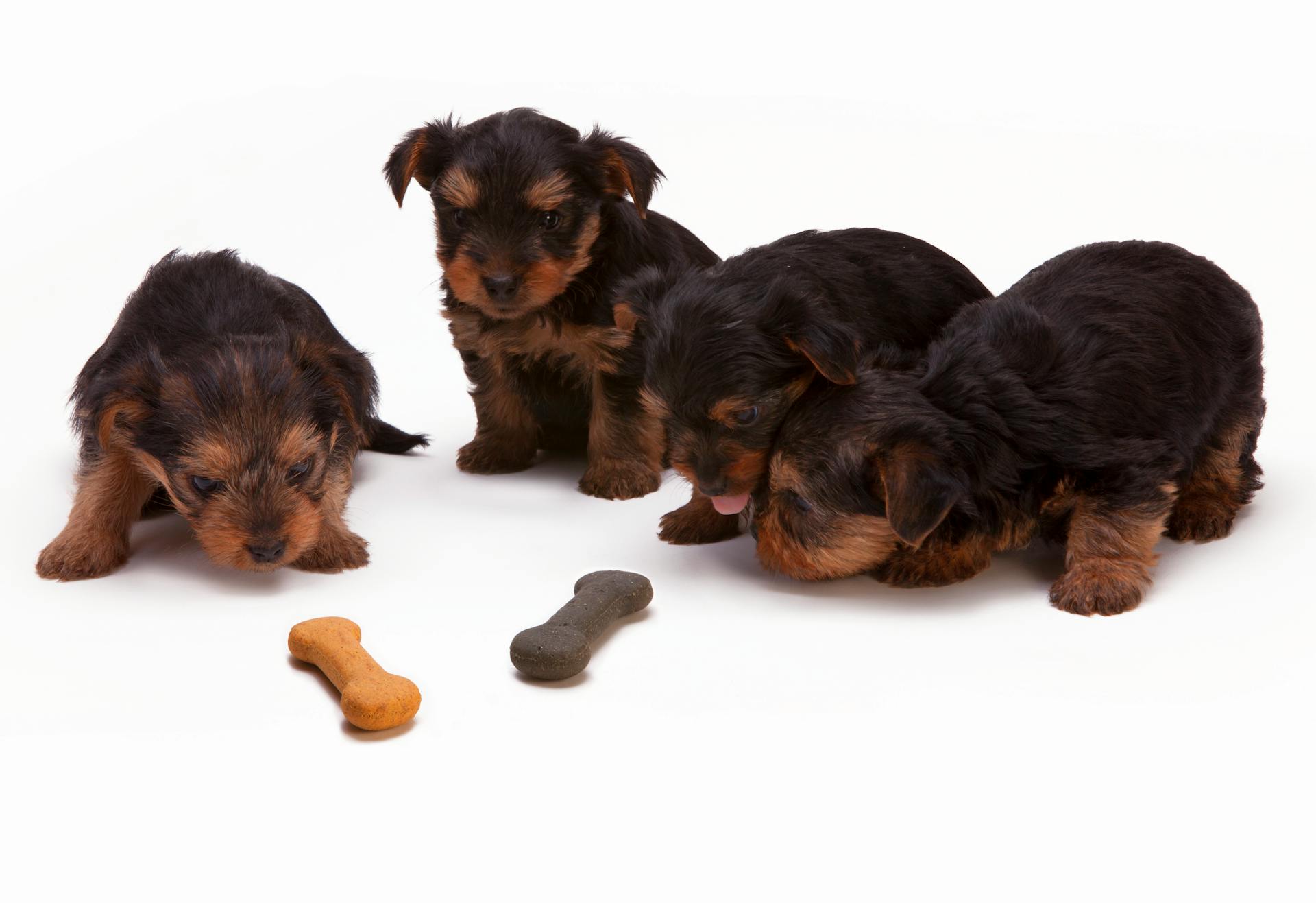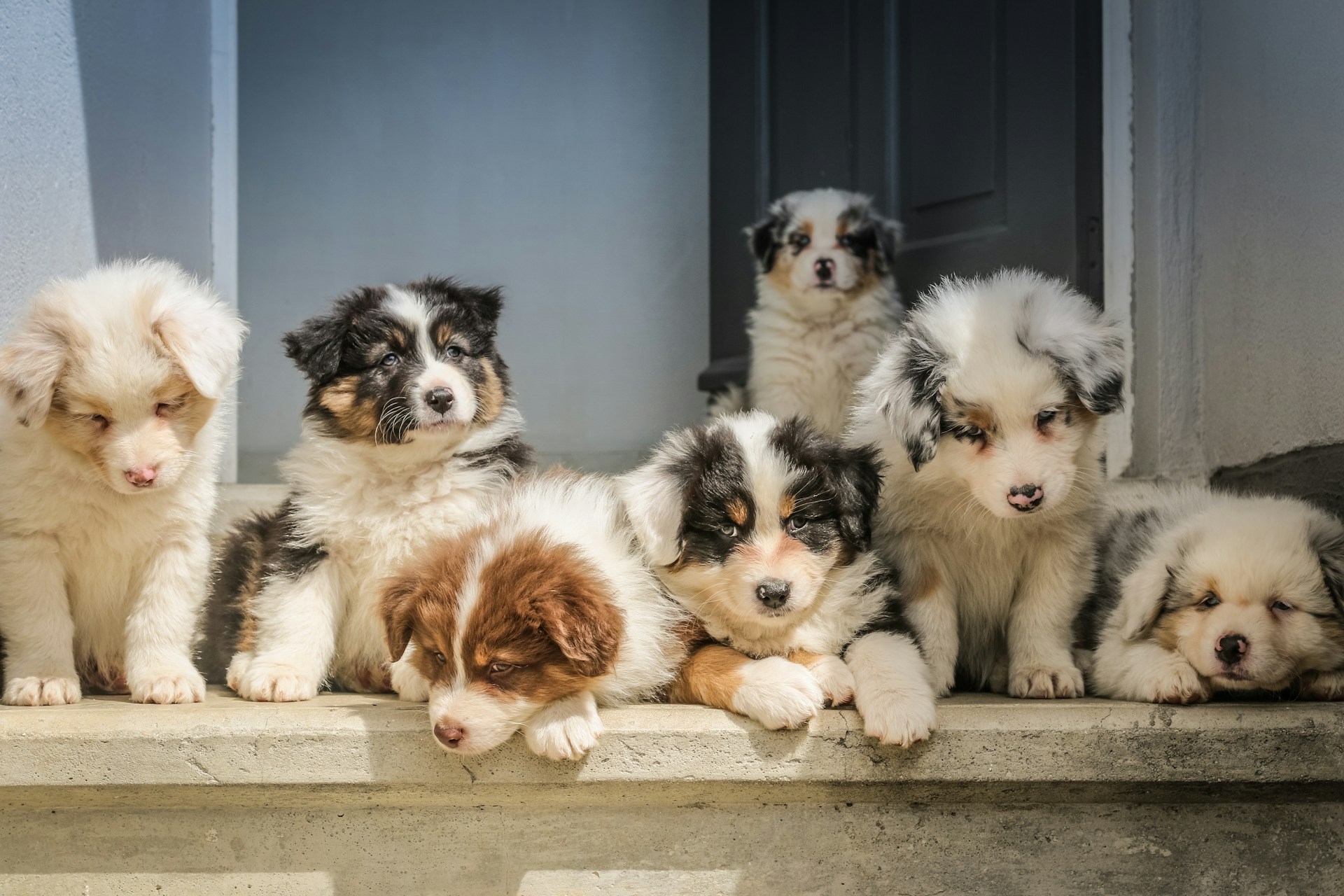Table of Contents
Introduction:
Bringing a new guest into your home is an exciting and fun experience, but the art of raising a puppy can bring a new set of challenges that can very easily overwhelm first-time owners. From choosing the right breed of dog to realizing that the different stages of development of a puppies life require different needs, raising a dog requires proper planning, patience, and dedication.
This ultimate guide has been developed to help you equip the skills you need to know to make sure your puppy grows into a healthy, happy, and content dog. Whether you’re just starting the journey or searching for advice as your dog matures, this extensive blog covers every aspect of puppy care, from the first day to their evolution into adulthood. With the right knowledge and preparation, you can easily develop a strong lifelong bond with your little furry friend, giving them the best possible start in life.
1: Preparing for your Pet’s Arrival:
Before you decide to bring a new puppy into your home it is essential that you decide what type of dog breed you insist on getting. This decision will heavily impact your puppies health and livelihood and can make your life with your pet easier as well, before taking a decision of buying a puppy you must make sure what kind of house you own, what type of environment is around you and must consider the temperature and spaciousness of your neighborhood as well as these factors heavily influence a puppies livelihood, its physical and mental health.
Choosing the right breed can heavily influence your daily lifestyle, for example if you and your family are outdoorsy then choosing a breed with high energy levels and a big size would be essential, however if you and your family don’t really go out much then choosing a breed with low energy levels would be efficient.
After you’ve made the decision of what breed you prefer you must then dog proof your home. Much like baby-proofing, dog proofing basically ensures the safety of your dog and prevents any accidents that may occur. Puppies love to chew so keeping electric cords out of reach should be your first priority to make sure the puppy does not electrocute itself. Keep small choking hazards locked away or on the top of shelves or cupboards where your puppy cannot reach. Many household plants can be toxic to dogs, you must research what type of plants are helpful for your breed and remove any toxic plants that may make your puppy get sick or hospitalized.
The next thing you should focus on is to create a specific puppy designated zone so that your puppy can stay there and play to its hearts content. You should also store up on essentials like small crates for your puppies bedding, puppy food and introduce its litter box, and also buy some toys to promote healthy play.
2: Training:
The art of training a puppy is one of the most crucial aspects of raising an orderly and well behaved dog. Training in its early years can set the foundation for your puppy’s behavior and creates clear communication channels between you and your puppy. In this section we will cover how you can initiate and train your puppy to become the good boy that he is.
First you should focus on the basic commands which are “Sit” “Stay” “Come” “leave it” and “No”. These five words should be the staple of your commands and should be ingrained into your puppy so that it can completely understand them by its adolescence. Sit, Stay and Come are self explanatory but leave it should be understood to make sure that your puppy does not mess with any household item that he should not be messing with, establish a strong sense of friendship and respect by consistently practicing positive reinforcement. Rewarding good behavior with your puppy’s favorite treats and ignoring his negative behavior. This method is fool-proof and ensures that your puppy understands what type of behavior is acceptable and what type of behavior is frowned upon.
Consistency is the key in creating a well trained puppy, make sure all your family members in the house also repeat the same words and make sure that the repetitiveness and consistency of tone makes your puppy understand what they mean. This added with a timely schedule for breaks, feeding and play time is sure to add a certain amount of discipline to your puppy’s life. With an added amount of patience, your puppy will become well trained and well behaved in no time.
3: Health-Care:

As a pet owner it is highly imperative that you provide proper healthcare for your puppy, so that it can mature into a strong healthy canine. Routine vet visits are the main cornerstone of your puppy’s healthcare. Make a proper vaccination schedule with his vet, make regular visits and consistently consult your veterinarian about any behavior changes or changes in diet, especially while making changes to his food habits etc, consulting your vet for every decision you take on your puppy should be an essential part of your schedule for the first few months of having a puppy.
Prepare a vaccination schedule with the vet and make sure you adhere to it, regular preventive care is essential in protecting your puppy from life threatening diseases. Make sure to get a full checkup of your puppy in its starting days so that you can know if it has any diseases or allergies you need to take care of. Having proper healthcare is crucial for developing a healthy and happy puppy.
4: Adapting for his Adolescence years:
As your puppy matures and grows into adolescence, its needs and requirements will slowly change through the course of time. Although puppyhood is a time of rapid change and growth, the adolescence phase brings its own set of challenges and problems. Starting around 6 months and till 2 years it is often marked by behavioral changes and a sudden surge of independence.
Your puppy might display enhanced signs of independence, they might not listen to your commands and enter a newfound exploratory phase in their life, this is highly normal and you should not be stressed out about it. Adolescent dogs experience a sudden burst of energy. They may become more playful, more curious to outer environments and sometimes even get more mischievous. This increased energy requires outlets through structured play, exercise and stimulation.
Social Dynamics may also change as your puppy interacts with other dogs and people, they might become more assertive or might even become more shy. It is very common for puppies to change their personality dynamics during their adolescent phase, therefore it is highly important to reinforce basic commands and training methods to make sure they keep themselves busy and remember their basic training. Reinforcing basic commands with patience and consistency is key. After a while you should start to advance their training, such as off-leash commands, speed exercises and you can even teach them some complicated tricks through positive reassurance. Continuing positive reinforcement techniques is imperative to keep them in a chipper and good behavior.
Continue to expose your puppy to new environments, people and animals so they do not develop into a shy house-comfort animal. It is imperative for your dog’s health that they stay as active as possible.
As your puppy transitions there will also be a change in its dietary habits, most puppies are ready to change their dietary habits between 12-16 months, depending on their breed and size. To combat their dietary changes, you must gradually change their food over a span of 7-10 days. The gradual change will make sure that your dog does not get uncomfortable with the new food. During this phase it is imperative to keep a close eye on your dog’s physical health, as many dogs can easily develop obesity or get weak if they are not getting a proper diet.
Some puppies may grow and develop allergies, it is crucial that you visit the vet regularly during this adolescent period to ensure that you keep all of their physical health requirements in check. Give them nutritional supplements to make sure they keep growing, take good care of their hydration as developing adults drink more water than usual. Introduce dental care to your dog’s physical routine as many dogs might develop oral issues during this age. Brush their teeth regularly and make sure that you buy them dental toys that inhibit positive oral growth.
5: Developing an emotional Bond:
Developing an emotional bond with your dog is essential for both you and your pet to have a happy content life with each other. As your puppy grows into a healthy adult dog the relationship and bond you both develop with each other will remain a foundation for a lifetime’s worth of love, companionship and mutual respect.
The most crucial step in developing a bond with your puppy is to engage it in play with yourself, doing its chores and remaining an active part of its life, if your puppy keeps seeing you it will automatically keep you in a state of authority and respect. Establishing a regular routine helps your puppy understand what it can expect from you and what you expect from it. Regular feeding times, play times and physical exercise will make it accustomed to your presence and will automatically create a genuine bond between you and your puppy.
Another crucial aspect in developing a bond with your dog is to understand how it communicates with you. There are many things you must be vary of while observing your puppy. For example, a puppy displays feelings of alertness, contentedness, fear and submission all through the directions of its ears. Forward facing ears usually indicate alertness, laid back ears indicate fear or submission while calm and floppy ears mean that your puppy is calm and content.
Just like the ears the tail can also indicate a puppies behavior and moods, it is the most expressive part of a dogs body. A wagging tail doesn’t necessarily mean that the puppy is happy, the speed and height of the wag can determine if the puppy is happy, scared, nervous or even if it is showing aggression. It is ultimately your job as a pet owner to realize what type of body movements indicate what type of moods your puppy is going through. Developing a strong bond often means making sure that you understand each and every part of your puppy’s moods and behaviors, it may seem like alot at first but once you get the hang of it you will surely create a life-lasting friendship with your puppy.
FAQ:
1. How do I train my dog during its adult years?
Reinforce the basic command training so that it remembers its basic training and try to incorporate new tricks and advanced forms of training to keep up with its highly elevated energy levels.
2. My Dog keeps ignoring my commands, what should i do?
Make sure to initiate a strong bond between you and your puppy, try to understand his body language and determine what type of mood he is displaying, then make sure to train him when he is eager or active so that there is a systemic communication between you two.
3. My puppy doesn’t like to eat dog pellets, what else should I give him?
Try to incorporate other forms of food or nutrition into his diet, maybe different brands of dog biscuits or pellets or you could even give him meat according to the advice of the vet.
4. Should I increase my dog’s outdoor walk time as he ages?
Yes, you definitely should, as your dog ages and grows so does his activity levels, it is imperative that you increase the time or magnitude of his training and exercise to keep up with his elevated energy.
